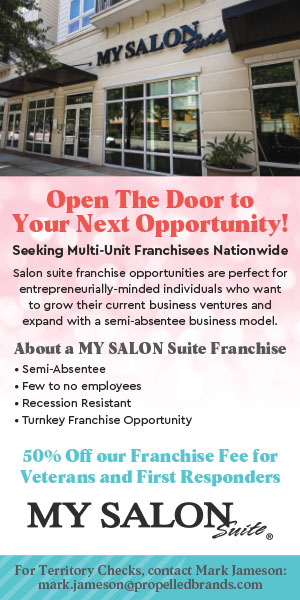4 Common Sales Mistakes To Avoid - and Tips for Selling More

In my 25 years of helping companies improve sales, little has surprised me. I have observed companies in all industries invest time and money educating their sales associates so that they know their territories, their company history, their products, and their competitive marketplace.
However, companies often stop short in preparing their associates to design and deliver persuasive sales presentations that focus on what their prospects are interested in hearing.
Before you invest the appropriate time in rehearsing your sales presentation, make sure your structure and focus are right. Here are four common mistakes I see on the sales stage and the sales secrets you must know to avoid them.
1) Unclear thinking
Want clarity? Imagine that a busy executive says, “You have exactly 10 minutes to tell me what you want me to know about your company.”
At any stage of the sales process, you should know in advance what your prospect is really asking. The real questions are, “What do I need to know about how your company can improve our company? Will your products or services solve a problem, create new opportunities, increase savings, maximize earnings, simplify our processes, develop our human capital, or increase market share?”
At this point, the executive is more interested in their own company than they are in yours. When you are clear on what your prospect really wants to know, you present your options more effectively. You sell more.
2) Talking too much
The key to connecting with a client or prospect is conversation and asking questions. The quality of client/prospect information received depends on the quality of your questions – as well as waiting for and listening to the answers! A successful encounter early in the sales process should probably consist mostly of open-ended questions, the kind that require essay answers, rather than just a “Yes” or “No.”
Never rush on with preprogrammed questions that reveal you’ve paid no attention to the answer you just received!
Your job is to work closely with the team or champion who will give you information. Do your research so that your questions about their company are well thought out. Do not be afraid to go deeper. If they want to increase sales, ask, “By how much?” “In the same market or expanding to a new one?” Do they want to improve morale? Ask, “What are the signs that make this a priority?” “What have you done before?” “How successful has it been?” Will they be upgrading technology? Ask, “How long have you been investigating options?” You need to determine whether they are interested or desperate.
3) Wrong structure
To keep senior leadership or a prospect interested, you must prove this premise: Your company’s condition will improve dramatically when you do business with us. Your talking points and presentation structure will be better received if they are not structured around your company. The “This is who we are, what we do, our unique methodology, and whom we do business with” conversation or presentation outline is not likely to get you very far. Use all the information you received from your questions to help them know you were listening. Structure the conversation or presentation around their interests, challenges, or opportunities. Put as many of their words as possible into your presentation. Your prospects will not disagree with themselves.
Yes, you will talk about your company, your satisfied clients, and what is unique about you as a way to prove that you can appeal to what they are interested in, solve their challenges, and maximize their opportunities.
4) No memorable stories
Customers and your prospects rarely remember your exact words. Instead, they remember the mental images your words inspire. Support your key points with vivid, relevant client success stories. Help them see a movie in their minds by using your satisfied clients as memorable characters.
What was their starting situation? Does the problem your prospect is experiencing compare to that of your now happy customer? How are their results since you worked with them?
The best stories are third-party endorsements that have your clients or customers using much more glowing statements than you could use. Endorsement stories should be like a good Hollywood movie: with memorable characters your prospects can identify with, vivid dialogue, and a dramatic lesson about the benefits of doing business with you. When telling those client stories, give them a backstory, add drama, and use actual dialogue that has been edited. Director Alfred Hitchcock said, “A movie is just like a life with all the dull parts left out.”
Situation. When John Smith, the vice president of sales, first called, he said, “Help. We heard you are the right person (or company) to help us solve…” Always use the client’s words.
Solution. What we did was… Here you talk about the solution or methodology your client experienced that will relate to what your prospect is most likely interested in. This can be delivered in your own words.
Success. The success is presented in the words of your happy client. “If John were here, he would tell you, ‘We would not have believed it possible that we could have... You can’t go wrong choosing (your company).’”
Now that you have these sales secrets to help you prepare your sales presentations, you will be ready for a productive rehearsal!
Patricia Fripp is an expert in business communication, public speaking, a presentation skills expert, and an award-winning speaker and speech coach. Named “One of the 10 most electrifying speakers in North America” by Meetings and Conventions magazine, she is a past president ( and the first female president) of the more than 3,500-member National Speakers Association. Visit www.fripp.com, call 415-753-6556, or email her at pfripp@ix.netcom.com.
Share this Feature
Recommended Reading:
Comments:
comments powered by Disqus| ADVERTISE | SPONSORED CONTENT |
FRANCHISE TOPICS
- Multi-Unit Franchising
- Get Started in Franchising
- Growth
- Operations
- Open New Units
- Leadership
- Marketing
- Technology
- Legal
- Awards
- Rankings
- Trends
- Featured Franchise Stories
| ADVERTISE | SPONSORED CONTENT |






 The franchise listed above are not related to or endorsed by Franchise Update or Franchise Update Media Group. We are not engaged in, supporting, or endorsing any specific franchise, business opportunity, company or individual. No statement in this site is to be construed as a recommendation. We encourage prospective franchise buyers to perform extensive due diligence when considering a franchise opportunity.
The franchise listed above are not related to or endorsed by Franchise Update or Franchise Update Media Group. We are not engaged in, supporting, or endorsing any specific franchise, business opportunity, company or individual. No statement in this site is to be construed as a recommendation. We encourage prospective franchise buyers to perform extensive due diligence when considering a franchise opportunity.